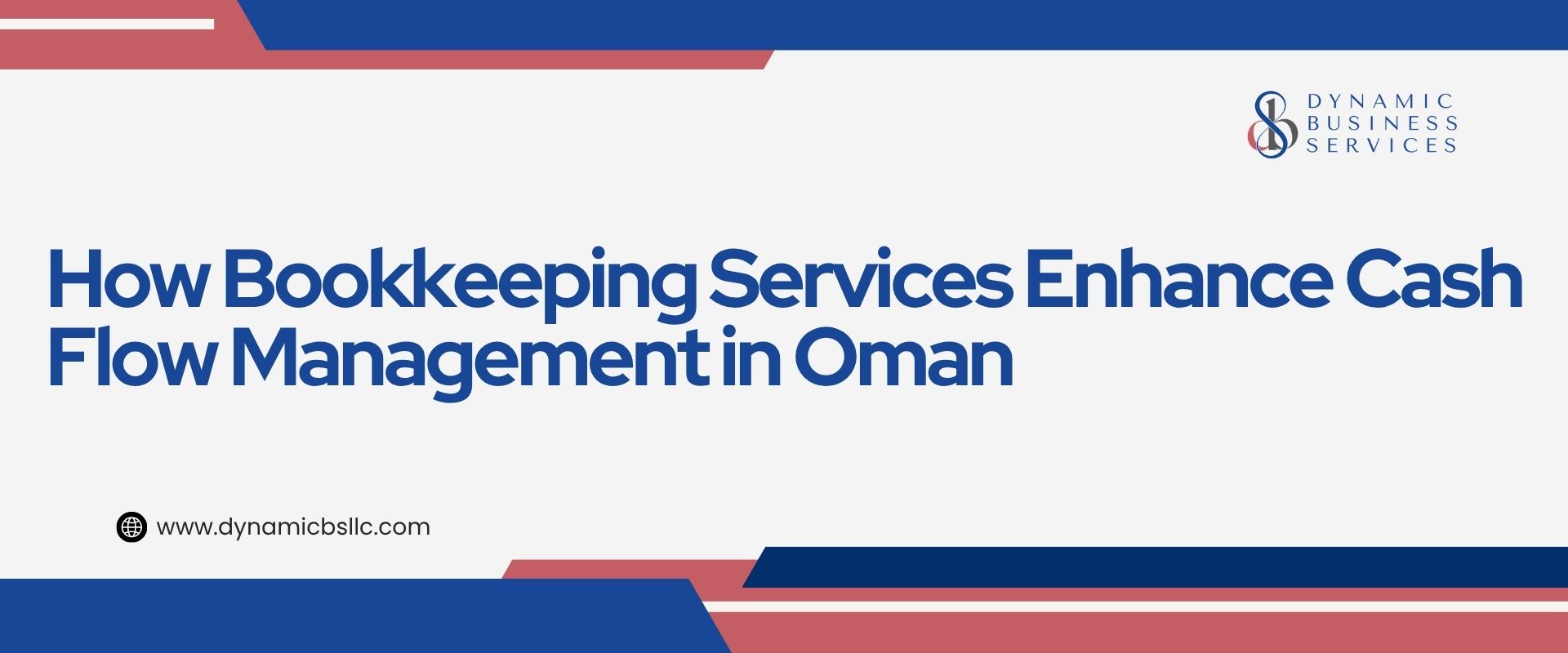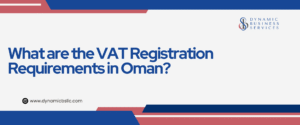Cash flow is the lifeblood of every business. In Oman’s competitive market, managing inflows and outflows effectively is essential for sustainability and growth. Many companies struggle with irregular payments, delayed receivables, and unplanned expenses, which can drain resources quickly. The solution lies in adopting professional bookkeeping services, which provide accurate financial records, identify cash gaps, and improve decision-making.
This guide explains how bookkeeping services enhance cash flow management in Oman, why they matter for businesses of all sizes, and how they help companies thrive in the Sultanate’s growing economy.
Table of Contents
Importance of Cash Flow Management in Oman
Managing cash flow effectively ensures a business has enough liquidity to cover expenses, invest in opportunities, and withstand market fluctuations. In Oman, where SMEs and large enterprises face increasing operational costs and competition, cash flow management has become a vital part of business survival.
Why Cash Flow is Critical
- Ensures timely supplier payments and employee salaries
- Prevents overdrafts, penalties, and debt accumulation
- Allows businesses to reinvest in operations and expansion
- Provides stability during periods of low revenue
Role of Bookkeeping in Effective Cash Flow
Bookkeeping in Oman plays a central role in monitoring the daily movement of funds. Proper bookkeeping provides transparency, minimizes financial errors, and ensures compliance with local accounting standards.
How Bookkeeping Improves Cash Flow
- Tracks receivables and ensures faster collection cycles.
- Highlights unnecessary expenses for cost control
- Helps businesses forecast future cash needs
- Identifies trends in customer payments and seasonal fluctuations
Benefits of Professional Bookkeeping Services in Oman
Hiring experts for Bookkeeping Services in Oman provides businesses with structured processes and specialized knowledge, which is difficult to achieve in-house.
Accuracy in Financial Records
Bookkeepers provide accurate tracking of income and expenses, which reduces the risk of errors in financial statements. This accuracy directly impacts cash flow by preventing revenue leaks.
Improved Cash Flow Forecasting
Professional bookkeeping helps prepare reliable cash flow projections, which guide financial decisions such as expansion, investment, or securing loans.
Compliance with Omani Regulations
Local experts understand Oman’s accounting laws, VAT requirements, and financial reporting standards, ensuring full compliance while keeping cash flow stable.
How Bookkeeping Enhances Cash Flow in SMEs and Large Enterprises
Bookkeeping supports businesses of every size, though its role differs slightly between SMEs and large corporations.
For Small and Medium Enterprises (SMEs)
- Reduces the burden of managing complex financial tasks
- Provides better visibility of short-term cash needs
- Enables small businesses to survive and scale gradually
For Large Corporations
- Ensures compliance with advanced accounting and auditing standards
- Improves multi-departmental cash allocation
- Provides detailed reports for board-level decision-making
Key Bookkeeping Practices for Better Cash Flow in Oman
Implementing strong bookkeeping practices helps businesses in Oman maintain steady liquidity and financial control. Tracking receivables, categorizing expenses, preparing cash flow statements, and accurate forecasting ensure stability. These practices prevent cash shortages, support smarter planning, and build resilience against unexpected financial challenges in a competitive market.
Tracking Receivables and Payables
Accurate tracking ensures invoices are collected on time, and bills are paid without penalties, which balances inflow and outflow.
Expense Categorization
Proper categorization of expenses allows companies to cut unnecessary costs and allocate funds to revenue-generating areas.
Cash Flow Statements
Regular preparation of cash flow statements highlights liquidity positions and prevents surprises in financial planning.
Financial Forecasting
Bookkeepers provide predictive analysis, helping businesses anticipate shortfalls and prepare solutions such as credit lines or cost adjustments.
Technology and Bookkeeping in Oman
Modern businesses in Oman are increasingly adopting accounting software and cloud-based tools for bookkeeping.
Use of Accounting Software
- Real-time tracking of transactions
- Automated invoicing and reminders
- Reduced human error in financial records
Cloud Bookkeeping Solutions
- Access financial data anytime, anywhere
- Enhanced security for sensitive information
- Better collaboration between accountants and business owners
Challenges of Poor Bookkeeping on Cash Flow
Ignoring professional bookkeeping can have severe consequences for a company’s cash flow.
Common Problems
- Missed payments and penalties due to poor tracking
- Overstated income or understated expenses
- Difficulty securing loans due to unreliable financial reports
- Inefficient tax filing and compliance risks
Outsourcing Bookkeeping Services in Oman
Many businesses are now outsourcing bookkeeping to save time, cut costs, and gain access to experts.
Why Outsourcing Helps
- Cost-effective compared to hiring full-time staff
- Access to skilled professionals with local regulatory knowledge
- Flexibility to scale services as the business grows
Conclusion
Effective cash flow management is the foundation of a successful business in Oman. By adopting professional bookkeeping practices, companies can achieve financial accuracy, predict cash needs, comply with regulations, and ensure long-term stability. Whether you’re a startup, SME, or large enterprise, leveraging bookkeeping is essential to keep your business thriving in Oman’s evolving economy.
FAQs
Do bookkeepers do cash flow statements?
Yes. Bookkeepers prepare and maintain cash flow statements, helping businesses track inflows and outflows accurately.
What is the accounting standard used in Oman?
Oman follows International Financial Reporting Standards (IFRS) for accounting and financial reporting.
How does poor bookkeeping lead to cash flow problems for a small business?
Poor bookkeeping causes missed invoices, delayed collections, and untracked expenses, leading to cash shortages and operational inefficiencies.
How to manage cash flow as an accountant?
Accountants manage cash flow by preparing forecasts, monitoring receivables, controlling expenses, and ensuring timely payments.
What is the best way to improve cash flow?
Improving cash flow involves faster invoice collections, reducing unnecessary expenses, and maintaining accurate financial records.
What is cash flow management in accounting?
It is the process of tracking, analyzing, and optimizing the flow of money in and out of a business to ensure liquidity and stability.








